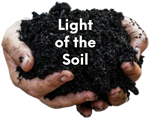Hands On Teaching - Vermicompost Audio
Hands-On Teaching of Vermicomposting
In an era dominated by digital screens and virtual interactions, the significance of hands-on learning cannot be overstated, especially when it comes to teaching grade schoolers about concepts like vermicomposting.
Vermicomposting, the process of using worms to decompose organic waste and create nutrient-rich compost, is not only a sustainable practice but also a powerful tool for instilling environmental consciousness and scientific understanding in young minds. By integrating hands-on vermicomposting experiences into grade school curricula, educators can foster a sense of wonder, responsibility, and ecological awareness that will last a lifetime.
Engaging the Senses
Hands-on learning engages multiple senses, leading to better retention of information. When grade schoolers get their hands dirty, touch the worms, observe the decomposition process up close, and handle organic waste, they establish tangible connections to the concepts being taught. These sensory experiences help solidify the knowledge and make it more memorable.
Connecting with Nature
Vermicomposting provides an authentic connection to the natural world, bridging the gap between classroom learning and the environment. As children interact with worms, they gain insights into the intricate balance of ecosystems, the importance of decomposition in nutrient cycles, and the vital role that small organisms play in sustaining life on Earth. Such firsthand experiences lay the foundation for a deeper understanding of ecological relationships and promote a sense of stewardship for the environment.
Fostering Curiosity and Critical Thinking
Hands-on vermicomposting experiences stimulate curiosity and encourage critical thinking in young minds. As students observe the worms' behavior, the changes in the compost, and the impact of different waste materials, they begin to ask questions and seek answers. Why do the worms prefer certain types of food? What conditions are optimal for decomposition? Encouraging these questions nurtures a scientific mindset, promoting the development of hypotheses and the testing of ideas.*Practical Application of Science
Vermicomposting provides an ideal context for applying scientific concepts learned in the classroom. From biology and ecology to chemistry and environmental science, vermicomposting encompasses a range of scientific principles. By actively participating in the process, students see theoretical concepts come to life, reinforcing their understanding of complex ideas.
Cultivating Responsibility and Empathy
Taking care of living organisms like worms teaches grade schoolers responsibility and empathy. They learn that their actions directly impact the well-being of these creatures and the success of the composting process. This experience nurtures a sense of empathy for all life forms, promoting kindness and compassion—an essential lesson in today's interconnected world.
Building Life Skills
Hands-on vermicomposting experiences offer more than just theoretical knowledge; they also build practical life skills. Students learn about waste reduction, recycling, and resource management—an understanding that can influence their behaviors and choices as they grow. Additionally, teamwork, communication, and problem-solving skills are honed as students collaborate to maintain the composting system.
Conclusion
Incorporating hands-on vermicomposting education into grade school curricula reaps multifaceted benefits. It not only imparts knowledge about sustainable practices but also nurtures a profound connection to nature, fosters curiosity, and cultivates vital life skills. As grade schoolers engage with worms and witness the magic of decomposition, they develop a holistic understanding of environmental systems and their place within them. By sowing these seeds of knowledge through hands-on experiences, educators contribute to a greener future, one empowered young mind at a time.
